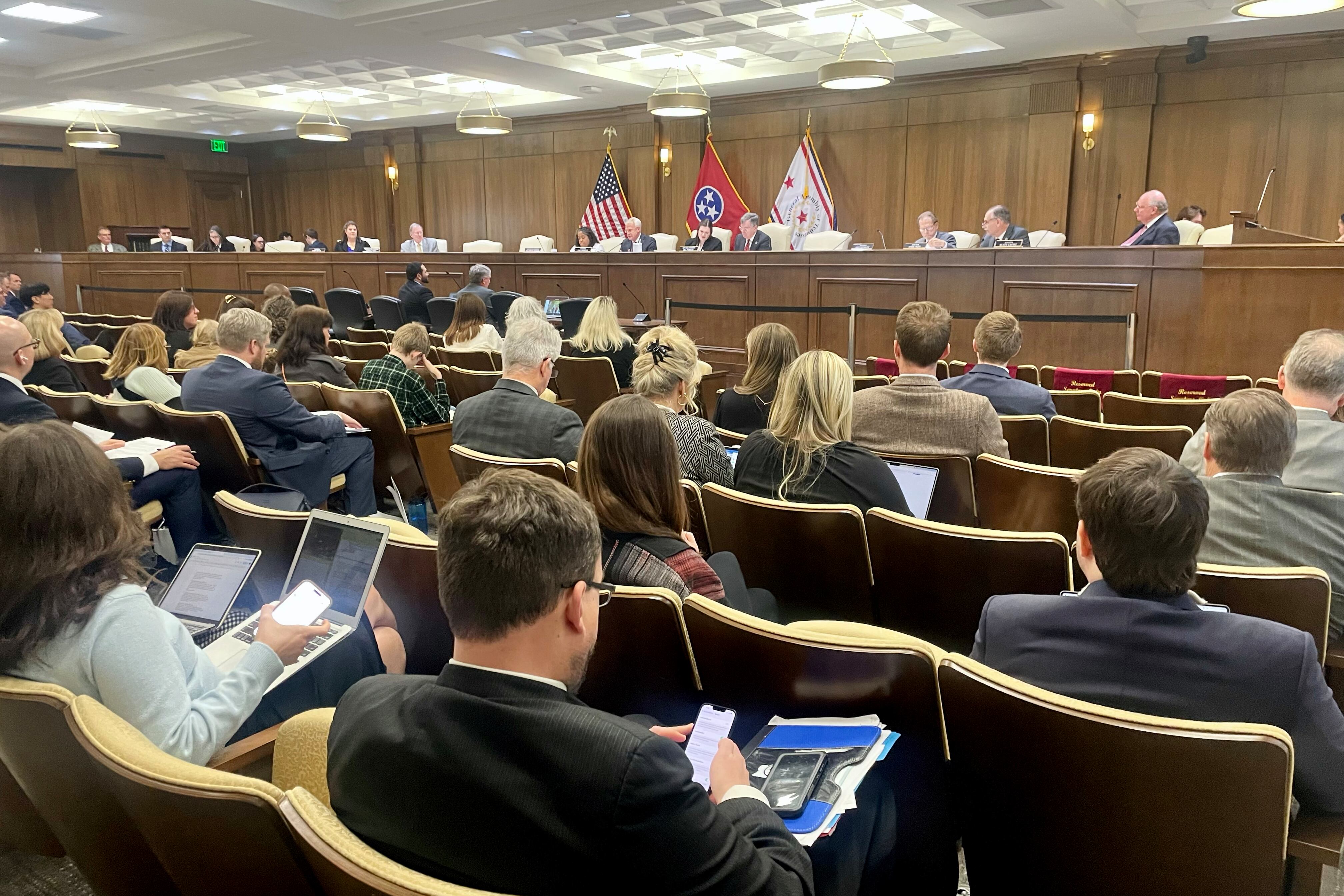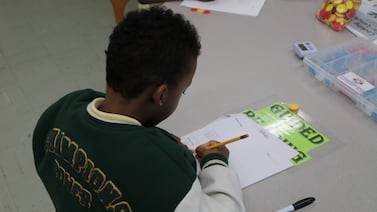Sign up for Chalkbeat Tennessee’s free daily newsletter to keep up with state education policy and Memphis-Shelby County Schools.
Republican leaders sounded optimistic about the prospect of passing some kind of expanded school voucher program, even as they stared at three markedly different proposals during the first week of public debate in Tennessee’s legislature.
All three pieces of legislation — one from Gov. Bill Lee, one from the Senate, and one from the House — have two things in common.
First, they aim to start a statewide voucher program with 20,000 students and eventually allow any K-12 student to use taxpayer funding to attend a private school.
Second, they’re expensive: Lee’s proposal would cost an estimated $144 million in its first year, while the projected price tag for the Senate’s version is $333 million and the House’s is $425 million, according to the first reports by the legislature’s financial analysts.
Beyond that, there are big differences in scope and approach.
The governor’s seven-page plan, called the Education Freedom Scholarship Act, does not require participating students to take annual tests to measure whether the plan leads to better academic outcomes.
The Senate’s 17-page version, from Majority Leader Jack Johnson, requires voucher recipients to take some type of tests, approved by the state Board of Education, that can be used to compare and rank students. It also would allow public school students to enroll in any district, even if they’re not zoned for it, provided there’s enough space and teaching staff.
The House’s 39-page proposal, filed Monday by Majority Leader William Lamberth, has no testing requirement for voucher recipients. The omnibus-style package also includes a slew of enticements for supporters of public schools, such as reducing testing time for their students, increasing the state’s contribution toward health insurance costs for teachers, requiring fewer evaluations for high-performing teachers, and giving districts an extra $75 per student — or about $73 million in all in the first year — to help with building costs.
Even with numerous legislative hurdles to clear before pivotal votes could happen on the House and Senate floors, the leaders of both chambers talked Thursday about the possibility of letting negotiators resolve their differences in a conference committee.
“Most of the time, the conference committee can work things out,” Lt. Gov. Randy McNally told reporters Thursday after the legislature had finished its business for the week.
“I don’t think either side is just locked in stone,” Lamberth added later.
Meanwhile, the governor told reporters he wasn’t worried that the Senate and House were starting out with very different approaches. He characterized his own proposal as simply a “framework” to get the discussion rolling.
“The encouraging part for me is there is an agreement that everyone wants to get school choice done,” Lee said. “The core tenets are the same. That’s how the legislative process works.”
House Republican leaders angered some within their own party by bringing their measure up for its first vote on the day after filing the massive package.
“This bill was dropped in our lap last night at 5 o’clock,” Rep. Todd Warner, a Chapel Hill Republican, said Tuesday as the measure was debated in the K-12 subcommittee. " We have not had the proper time to vet this bill, to go through it. There are lots of unanswered questions.”
But after two-plus hours of discussion, with representatives from the governor’s office in the room and a designee from House Speaker Cameron Sexton’s office available to break a tie vote, if necessary, the bill cleared its first legislative hurdle 6-2. Warner and Rep. Sam McKenzie of Knoxville voted no, and two other members did not vote. Rep. Kirk Haston, a Republican and public school official from Perry County who chairs the subcommittee, voted yes.
Lamberth, the majority leader from Portland who is sponsoring the House bill, said members were given ample time to review and discuss the bill.
“We will also have at least six or seven weeks before it will be on the House floor,” he said. “Nobody’s rushing any of this.”.
The next votes are expected on March 6 in the House and Senate education committees. If the measures clear those panels, they would head to the chambers’ finance committees and face a tougher audience because of their cost, especially in future years as the program grows.
Tennessee already has a nearly $378 million budget shortfall through the first six months of the current fiscal year, and Lee’s proposed budget would slash corporate business property taxes by hundreds of millions of dollars.
The state’s largest teacher organization also charged that the House bill aims to use money allocated for teacher raises to pay for other parts of the bill.
“The harm this voucher proposal would cause every district in the state cannot be offset by the other components included in the legislation,” Tanya T. Coats, president of the Tennessee Education Association, said in a statement on Friday.
Another financial concern is that the program would increasingly take on the cost of educating students who would have gone to private schools anyway.
Education Commissioner Lizzette Reynolds, while answering questions this week before the House panel, said more than half of the students enrolled in Tennessee’s current voucher pilot program in Davidson, Hamilton, and Shelby counties had never previously attended public schools. That’s because they enrolled as kindergartners, moved in from out of state, or took advantage of a revision in the 2019 law that opened up applications to families who might have been eligible while Lee’s Education Savings Account program was being challenged in court.
You can track the legislation and view a summary of differences in various proposals in an analysis by The Education Trust of Tennessee.
Marta Aldrich is a senior correspondent and covers the statehouse for Chalkbeat Tennessee. Contact her at maldrich@chalkbeat.org.






